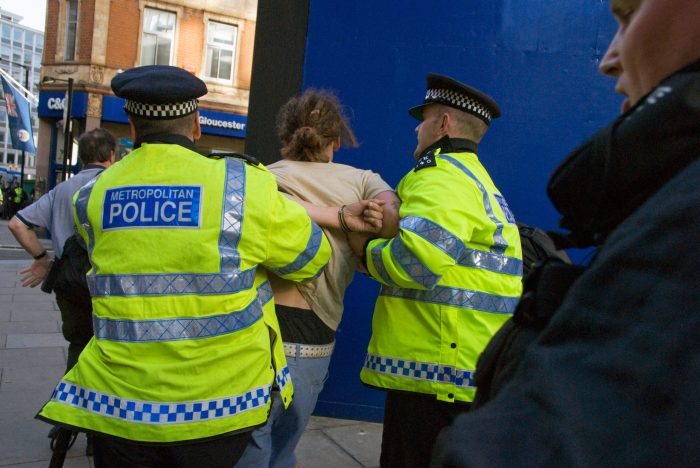Difference between detention and arrest – In the realm of criminal justice, the distinction between detention and arrest is of paramount importance. This article delves into the nuances of these two concepts, exploring their legal basis, procedures, rights, protections, and consequences.
Detention, a temporary deprivation of liberty, is distinct from arrest, which involves a formal charge of a crime. Understanding the difference between these two actions is crucial for individuals interacting with law enforcement.
Definition and Overview

Detention and arrest are two distinct legal concepts that involve the restriction of an individual’s freedom. Detention is the temporary holding of a person for a limited period, while arrest is the formal taking into custody of a person suspected of a crime.
Examples
Examples of detention include holding a person for questioning or identification purposes, or for a brief period after an arrest while awaiting further investigation or processing. Examples of arrest include taking a person into custody for a crime or for violating a court order.
Legal Basis

Detention is authorized by law enforcement officers under specific circumstances, such as reasonable suspicion of criminal activity or a threat to public safety. Arrest is authorized when an officer has probable cause to believe that a person has committed a crime.
Differences in Legal Processes
Detention is typically brief and does not require a warrant, while arrest requires a warrant or probable cause to detain the person beyond a reasonable time. Additionally, detention does not require formal charges to be filed, while arrest typically involves the filing of charges.
Procedures: Difference Between Detention And Arrest

Detention
Detention procedures include the temporary holding of an individual, usually in a police station or other designated facility. Officers may question the person, search them, and collect evidence. However, they cannot detain the person for an extended period without probable cause to arrest.
Arrest
Arrest procedures involve taking a person into custody and placing them under formal charges. Officers must read the person their rights, including the right to remain silent and the right to an attorney. The person is then taken to a police station or jail for booking and processing.
Rights and Protections
Individuals have certain rights during detention and arrest. These include the right to remain silent, the right to an attorney, the right to a fair and speedy trial, and the right to be free from unreasonable searches and seizures.
Differences in Protections, Difference between detention and arrest
Detention typically provides fewer protections than arrest. For example, individuals detained may not have the right to an attorney immediately, while those arrested do. Additionally, the length of detention is typically shorter than the length of arrest.
Consequences
Detention
Detention can have negative consequences, such as temporary loss of liberty, disruption of daily life, and potential harm to reputation. However, detention is typically brief and does not involve formal charges.
Arrest
Arrest has more serious consequences than detention. It can result in formal charges, a criminal record, and potential jail or prison time. Arrest can also lead to job loss, loss of housing, and damage to relationships.
Top FAQs
What is the primary difference between detention and arrest?
Detention is a temporary holding of an individual for questioning or investigation, while arrest involves a formal charge of a crime.
What are the legal grounds for detention?
Detention is permitted when there is reasonable suspicion that an individual has committed or is about to commit a crime.
What rights do individuals have during detention?
Individuals have the right to remain silent, the right to an attorney, and the right to be informed of the charges against them.